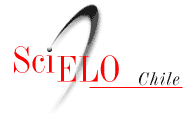Catalogue of the native Lycophytes (Lycopodiopsida) and Ferns (Polypodiopsida) from Chile
DOI:
https://doi.org/10.4067/S0717-66432024000200093Keywords:
catalogue, Chile, conservation, diversity, ferns, lycophytesAbstract
The Lycopodiopsida (lycophytes) and Polypodiopsida (ferns), classically known as “pteridophytes”, together they represent the first living lineages of plants with a vascular system in the sporophyte. Global diversity is estimated at 12,000 or more taxa, while in Chile the diversity of this group, according to the las publications, is estimated at 160 specific and infraspecific taxa, mainly in temperate humid zones of the country. The goal of this work is to update the inventory of the pteridoflora of Chile, including the nomenclature and distribution within the continental and insular territory of Chile of all the taxa present. An updated synthesis was made, presented in the form of a catalogue, including its conservation status according to criteria established by the IUCN. The pteridological flora of Chile is composed of 164 specific and infraspecific taxa distributed in 24 families and 57 genera, which represent 2.9% of the vascular flora of Chile. 35.4% are endemic species, while 64.6% are native. The summary by conservation categories for the taxa is: two Data Deficient, 33 Least Concern, 22 Near Threatened, 27 Vulnerable, 31 Endangered, 17 Critically Endangered and one Extinct. It is noteworthy that the endemic family Thyrsopteridaceae is categorized as Endangered (EN), which should be considered in management and conservation plans.
Downloads
Downloads
Published
How to Cite
Issue
Section
License
Copyright (c) 2025 Javian G. Gallardo-Valdivia, Marcelo D. Arana, Gloria I. Rojas, Paulette I. Naulin

This work is licensed under a Creative Commons Attribution-NonCommercial 4.0 International License.
Authors who publish with this journal agree to the following terms:
- Authors retain copyright and grant the journal right of first publication.
- The articles in this journal are published under Creative Commons Attribution-NonCommercial 4.0 International License that allows others to share the work with an acknowledgement of the work's authorship and initial publication in this journal.
- Authors are permitted and encouraged to post their work online (e.g., in institutional repositories, on their website or ResearchGate) prior to and during the submission process, as it can lead to productive exchanges, as well as earlier and greater citation of published work (SeeThe Effect of Open Access).













